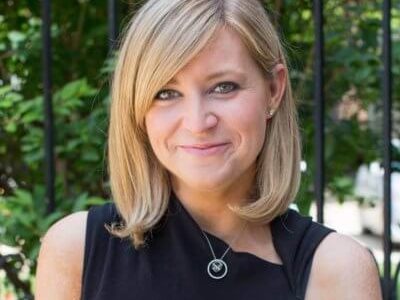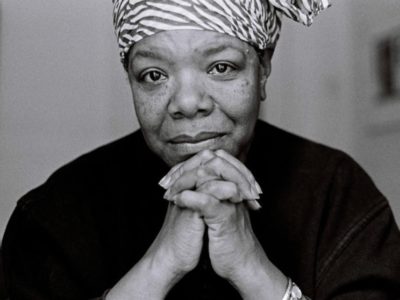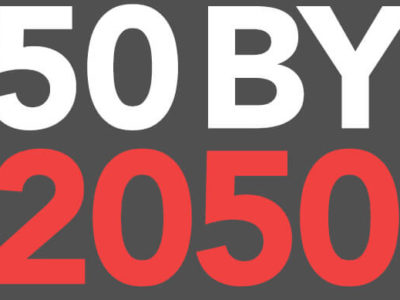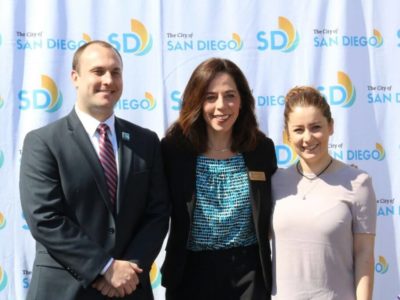Do you ever feel that your voice isn’t heard in the halls of Congress or local government? Melissa Richmond wants to change that by advocating for women on both sides of the aisle. She’s training the future women leaders of America as the vice-president of Running Start, a bipartisan, non-profit organization. She’s dedicated now more than ever to help women run and ultimately win.
CAREER TIMELINE
2007: Executive Assistant to Senior Advisor and National Finance Director for Romney for President Campaign
2009: Graduated from Brigham Young University with B.S. in Political Science
2011: Fundraiser for Restore Our Future Super PAC
2012: Deputy Director of Internal Affairs for Romney for President Campaign
2013: Became Vice President of Running Start: Bringing Young Women to Politics
2014: Graduated from The George Washington University with Doctor of Law
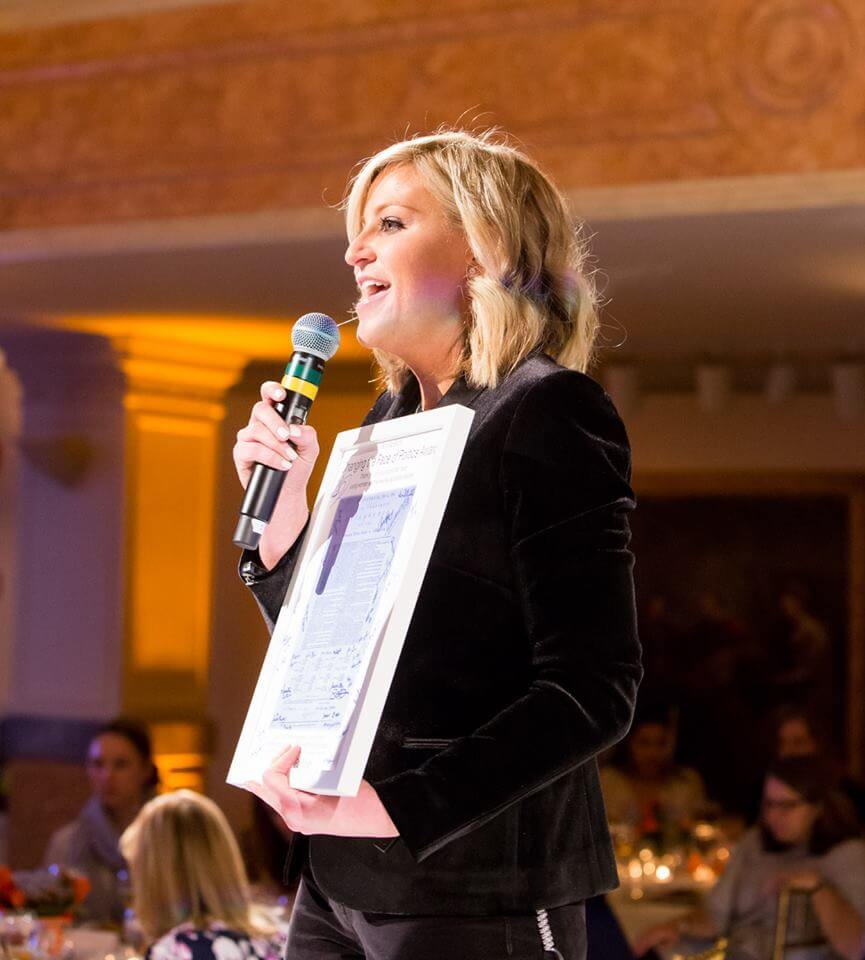
Q&A WITH POWERFUL WOMAN LEADER MELISSA RICHMOND
Q: At College Magazine we’re working together with EMILY’s List, Emerge America, Human Rights Campaign, Higher Heights, She Should Run, Running Start, Victory Fund and IGNITE on an initiative to fight for equal representation in congress called “50 by 2050.” What are your thoughts on the goal of achieving 50% of women in Congress by 2050?
A: I’d be so excited because I’d be alive. I’d probably go down to the Capitol with some sort of poster and celebrate, take pictures and go to the offices of the women who are serving and thank them for their service. If we can make that happen I’d be the happiest person.
Q: What inspired you to get involved in the political sphere?
A: I can’t remember a time when I didn’t love politics. By the time I was 16, Romney had just been elected Governor of Massachusetts and I cold submitted a resume by faxing it in, which sounds so antiquated in 2018 … [I] said I wanted to come and be an intern and he crazily said yes. I worked for 10 years primarily raising money and through two presidential campaigns. He wasn’t successful being elected president but I gained the coolest first-person and hands-on experience to see what it takes to run for president. I became more in love with politics than before. But then I also realized there was a lack of women running for office, serving in office and even in positions as donors and fundraisers.
Q: How did you begin your journey with Running Start?
A: I started as a mentee to Susannah Wellford, who I work with now. Our dads sat next to each other on a plane. Both of their noise-cancelling headphones were broken. They each talked about how proud they were of their daughters and the types of work that their daughters were doing. My dad asked Susannah’s dad if she would mentor me and she agreed. I completely fell in love with what Running Start was doing. I started volunteering and never left.
Q: Running Start is a bipartisan organization. Why is it important to advocate for women on both sides of the aisle?
A: I believe that it’s the right thing for our democracy to be reflective in the sense that our elected leaders look and sound like the people that they’re representing. It’s the right thing to do but it’s also the smart thing to do to have more women in office.
It’s shown that women are working together across the aisle. They work on a wide variety of issues, propose more legislation and bring more money back to their home district. So even if you don’t care about the fairness arguments on why we need more women in office, there are a lot of arguments for how they have a good return on investment and how they help the bottom line of government.
Just one in four of our elected leaders at all levels of government are women. Those women comprise less than 25 percent at every level of government, [including] international, national, state, local and even college student body president level. Among those women at the state level two in three are Democrats and at the federal level three in four are Democrats. There’s a massive disparity. In 2018, surges of women are excited about running, which I love, but the lion’s share of those are Democrats. It’s very likely that you’ll see the number of Republican women at the highest levels of politics actually decrease in 2018.
There are other organizations that Running Start knows and loves and cherishes.Those partners are technically non-partisan and train women to run for office, but Running Start’s core strength is being truly non-partisan. We do things to train underrepresented women like Republicans. I’m a Republican and I co-lead the organization. As far as I know I’m the only Republican woman doing nonpartisan women in politics work… There needs to be an asterisk to say virtually all the women [running] are Democrats and the number of Republican women in office may go down this year. If we’re not open about talking and take action about the lack of Republican women in office, running or being trained, the problem will get worse.
Q: You’ve conducted trainings not just in the U.S. but Jamaica, Mexico, and Sierra Leone. How is the experience training women around the world?
A: We’re lucky at Running Start to partner with the State Department and UNDP (United Nations Development Programme) to be able to train internationally. The interesting and surprising thing is that the challenges women who want to run for office all over the world face are essentially the same. The biggest issue worldwide is women lacking the confidence in their own qualifications to run for office as an internal barrier. There are a ton of external barriers like, increased scrutiny in the media on appearance, work-life balance issues and different cultural context. Some of those barriers become more important than others but all around the world women face essentially the same barriers to different degrees.
Q: After receiving criticism about your appearance during a training you were facilitating, you created #ILookLikeAPolitician. Can you tell me more about your experience and process?
A: Many young women throughout the country care deeply about making change on issues in their own communities and want to be change makers, but they appropriately fear the fact that the media and voters play too much emphasis on the way that women look, which diminishes their credibility to voters.
Our friends at She Should Run did research called, “Name It Change It.” [The research] shows that when focus on a woman’s appearance is positive or negative, it drives down voter perception of that candidate’s credibility so much that it may affect the outcome of the election. I was so mortified at [one] appearance [about my long hair] that I got a $9 haircut on the way home and cut off 13 inches of my hair. I later realized I should have been able to keep my long, blonde hair and still feel like a powerful woman. I’m white and cis-gendered and well-educated, and I was made to feel diminished because of my appearance. I questioned how many more barriers do women face that I don’t face because they’re women of color or live with a disability or transgender? How much more does their appearance affect the way people perceive them?
We created #ILookLikeAPolitician to encourage young women no matter what they look like, even if they don’t have a single role model who looks like them, even if they’ve been diminished because of their appearance, to say, “I care about issues and I want to make changes. Therefore, I Look Like A Politician.”
HOW TO BE A POWERFUL WOMAN LEADER
1. Vote
“First, register to vote,” Richmond said. “And vote in every single election including, primaries and off- year elections.”
2. Get Involved
“If you care about issues in your local community, it doesn’t matter how small they are,” Richmond said.
3. Join a Training
“There are a variety of great training resources you can access. And if you can’t do that find a mentor, it doesn’t have to be an elected woman, just someone who’s a role model to help encourage and inspire you to run.”
HOW TO CONTACT MELISSA RICHMOND
Follow her on Twitter
Check out the Running Start Facebook page
Visit the Running Start website

